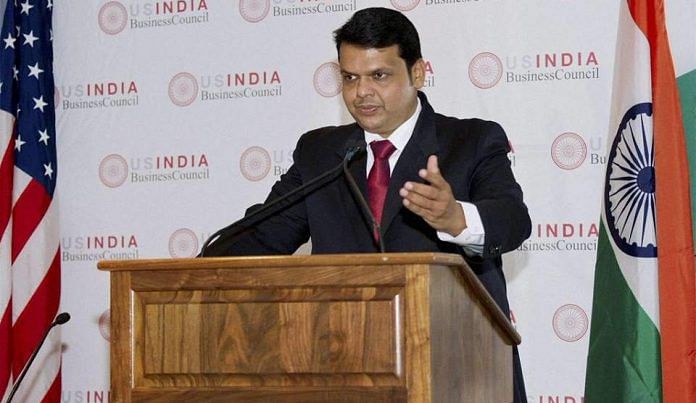To keep its word to ‘kisan long march’ farmers, the Devendra Fadnavis govt has made settling claims under Forest Rights Act part of collectors’ KRAs.
Mumbai: To ensure chief minister Devendra Fadnavis is able to keep his word to farmers who led a ‘kisan long march’ two months ago, the Maharashtra government has made settling claims under the Forest Rights Act a part of the ‘Key Result Areas’ (KRAs) of all concerned district collectors.
This means the exercise will be a major criterion for the performance appraisal of these collectors for 2018-19. The government has also set strict deadlines for every step of the process.
“We have asked all officials involved to take this very seriously, as the chief secretary himself will be reviewing it. All district collectors should send a progress note and related information to the commissioner, Tribal Research & Training Institute (TRTI), every 15 days,” said an official from the state tribal development department who did not wish to be named.
The government has also launched a ‘Vanmitra’ (friends of the forest) campaign and established a dedicated cell at TRTI to meet the CM’s deadline of six months for settling all claims for individual and community rights under the Forest Rights Act.
Fadnavis had brought in the concept of KRAs and targets for Maharashtra’s bureaucrats soon after taking over as chief minister, borrowing the concept from human resources practices in the private sector.
A key demand
Settling pending claims and appeals under the Forest Rights Act and getting ownership of the forest land that tribal farmers have been tilling for years was one of the key demands of the farmers’ long march two months ago, which grabbed national attention.
Thousands of tribal farmers, many of them over the age of 60, trudged to Mumbai from Nashik, covering 170 km over six days. A majority of them were small tribal farmers, who grow rice, wheat, cereals and pulses on plots ranging from an acre to five acres at the most. They rely only on rainwater and have small harvests, most of which is kept for personal use.
CM Fadnavis met the organisers of the march, leaders of the All India Kisan Sabha’s Maharashtra unit, and promised to resolve all claims and appeals under the Forest Rights Act and give tribal farmers land titles within six months.
As per data from the ministry of tribal affairs, as of 31 October 2017, Maharashtra had received 3.64 lakh claims under the Forest Rights Act, and had distributed 1.12 lakh titles, clearing about 31 per cent of the total claims. This was a much lower figure than Tripura’s 63 per cent, Jharkhand’s 54.8 per cent, Andhra Pradesh’s 51.35 per cent and Telangana’s 50.4 per cent, to name just a few states.
Shortcomings in the process
The official from the tribal development department said: “The TRTI analysed the rejected claims to identify the main reasons for rejection, and found a number of shortcomings in the entire process. We have made a list of these and circulated them among officials handling claims under the Forest Rights Act, so that these can be addressed.”
The shortcomings include not giving the claimant a hearing before dismissing the claim, not informing the claimant about the rejection and the reasons for it, improper site inspections without the presence of the claimant, insisting that the claimant show a proof of having paid a penalty for occupying forest land to consider his claim.
In some cases, claims and appeals have been rejected simply because of negative remarks by the forest and revenue department, despite there being other proof to consider the claims.
As per the Forest Rights Act, there is a three-tier structure to look into claims by the tribal population on forest land. The gram sabha is the first authority that initiates the process. It is supposed to receive the claims for individual and community forest rights, verify them, prepare a map delineating the area of each recommended claim, and pass a resolution.
In case the claimant is unhappy with the gram sabha’s decision, he or she can appeal to a sub-divisional committee within 60 days. Further, any person aggrieved by the decision of the sub-divisional committee can petition before a district-level committee, which is supposed to be the final authority in deciding on claims under the Forest Rights Act.
Stringent deadlines
The state government has now put down stringent deadlines for all three levels. As per the state’s directives, all gram sabhas should look into pending claims and pass resolutions by 30 May 2018. Then, by 15 June, district-level committees are required to take a decision on all rejected claims where they have already ordered a review. Further, these committees are supposed to review, on their own, all rejections by sub-divisional committees and take decisions by 15 July, as well as give final decisions on cases put up by sub-divisional committees.
By 15 August, the state government wants to complete the process of measuring land and fixing boundaries for all approved claims.



